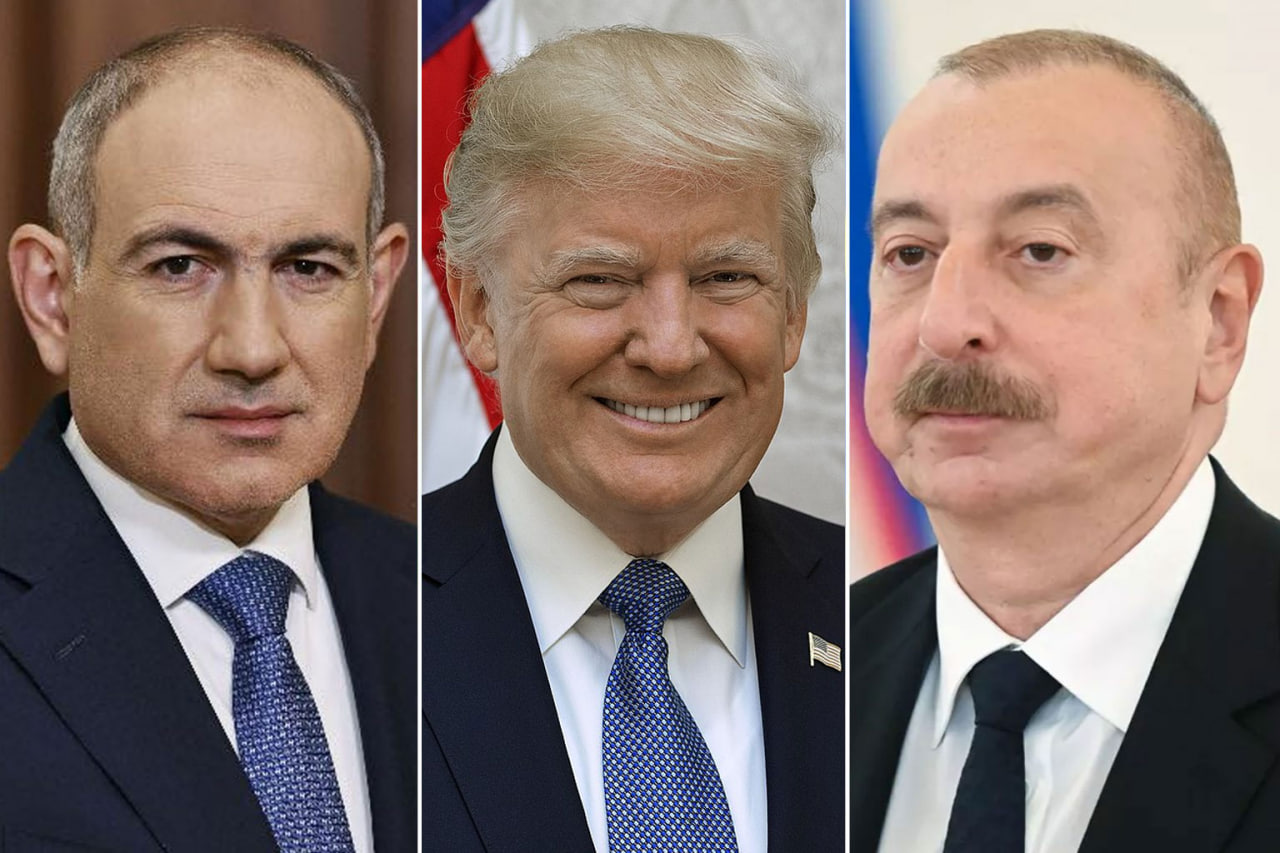Trump, Aliyev, and Pashinyan Hold Historic Meeting: U.S. Returns to the Caucasus

A
historic trilateral meeting took place at the White House between U.S.
President Donald Trump, Azerbaijani President Ilham Aliyev, and Armenian Prime
Minister Nikol Pashinyan. Following the negotiations, the parties signed the Washington Memorandum of Understanding,
aimed at ending the long-standing Armenian-Azerbaijani conflict and launching a
new phase in the development of the South Caucasus.
The
memorandum outlines key commitments: the official demarcation of borders between Armenia and Azerbaijan, the opening of a strategic transport corridor
between Azerbaijan and Nakhchivan, a mutual
renunciation of force, and an increase in diplomatic engagement. In
addition, an international monitoring
group was established, including representatives from the U.S., EU, and
other countries, to oversee the implementation of the agreements.
After several years of relative inaction, the United States is returning to the politics of the Caucasus – not as a bystander, but as a direct guarantor of the diplomatic process. President Trump not only initiated the meeting but also publicly declared a “new era of stability and prosperity in the region”, highlighting America’s interest in economic integration and the security of the South Caucasus.
At
the heart of the agreement are infrastructure
projects, including the construction of transport and energy corridors
with participation from American companies. This fosters mutual economic interdependence, which
could form a solid foundation for sustainable peace between Baku and Yerevan.
The
fact that the negotiations took place in Washington, not Moscow, symbolizes a shift in the center of influence in the Caucasus. This may alter
the balance of power in a region previously dominated by Russia with support
from Iran. Now, Armenia and Azerbaijan are presented with a new strategic direction – toward the West, opening up new
opportunities but also introducing new challenges.
Despite
the positive momentum, several critical issues remain unresolved: the status of Karabakh, the security of ethnic Armenians in
territories returned to Azerbaijan, and humanitarian
concerns such as the return of refugees and the demilitarization
process.
President Trump emphasized that the United States is “ready to act as a guarantor of peace and to ensure that the agreements
are fulfilled in the interests of the entire region”.
This historic meeting between Trump, Aliyev, and Pashinyan may mark the beginning of a new architecture of peace in the South Caucasus. The United States is presenting itself not as an abstract partner, but as a guarantor of peace, development, and security. For the South Caucasus, this is a chance – after a long history of conflict – to step toward stability and growth.
 Latest news
Latest news Latest news
Latest newsRussia and Syria: A New Chapter in Relations After the Coup
16.Oct.2025
NATO and EU Join Forces to Build a “Drone Wall”
15.Oct.2025
Trump: New bonds of friendship to join Armenia to Azerbaijan
14.Oct.2025
UK to lift its arms embargo on Armenia, Azerbaijan
14.Oct.2025
Russia Opens New Criminal Case Against Opposition Figure Khodorkovsky
14.Oct.2025
Expert analysis by Tigran Khzmalyan: If Pashinyan wins again, Armenia will fall completely under Russia’s influence
14.Oct.2025
The Kremlin Warns the West of Dangerous Escalation: U.S. Plans to Supply Tomahawk Missiles to Ukraine
12.Oct.2025
Moscow Admits Guilt for Downing Azerbaijani Plane: Putin and Aliyev Show “Mutual Understanding of Authoritarian Allies”
10.Oct.2025
Kazakhstan to Fully Transition to Digital Governance: Tokayev Announces Creation of New Ministry
10.Oct.2025
State Duma Denounces Plutonium Disposal Agreement with the United States
09.Oct.2025

 20 Oct 2025
20 Oct 2025








